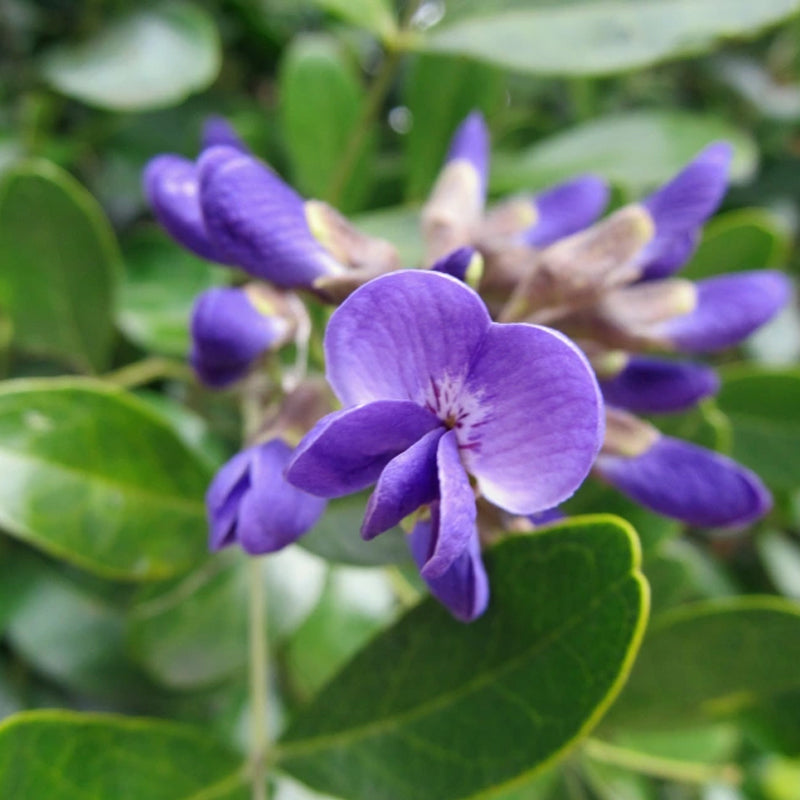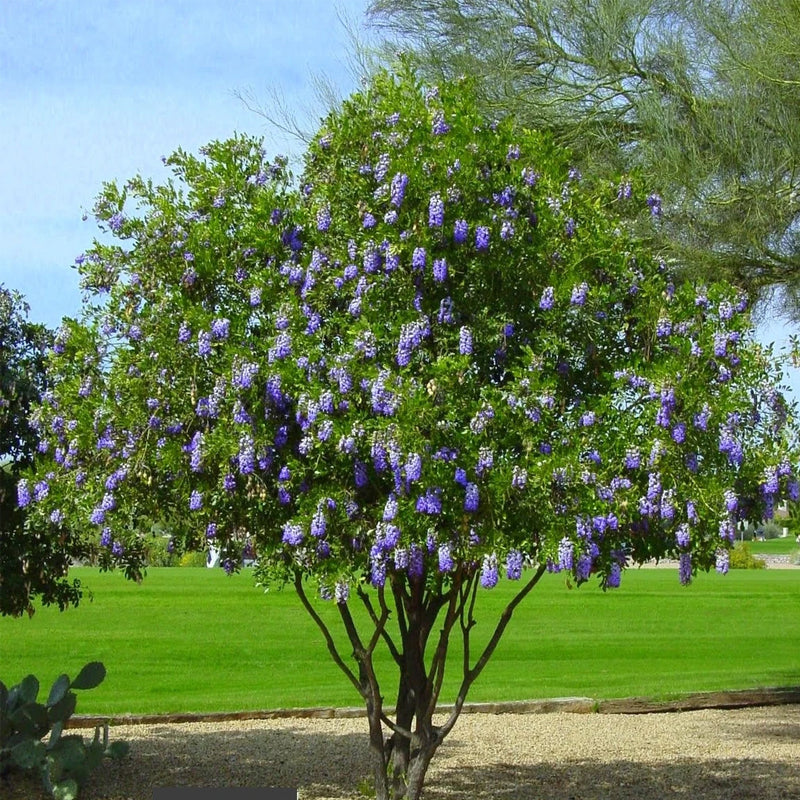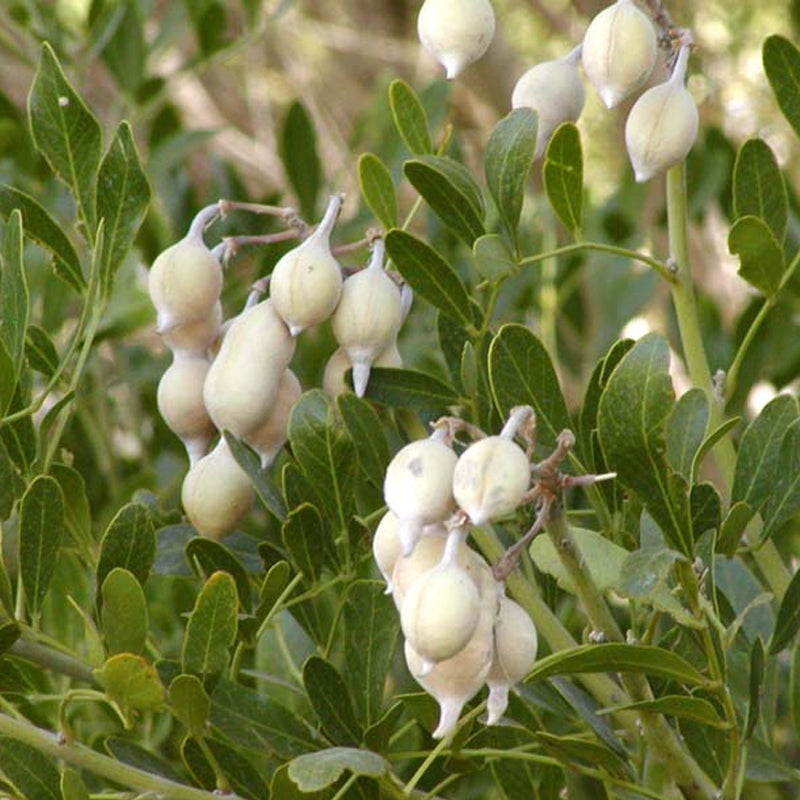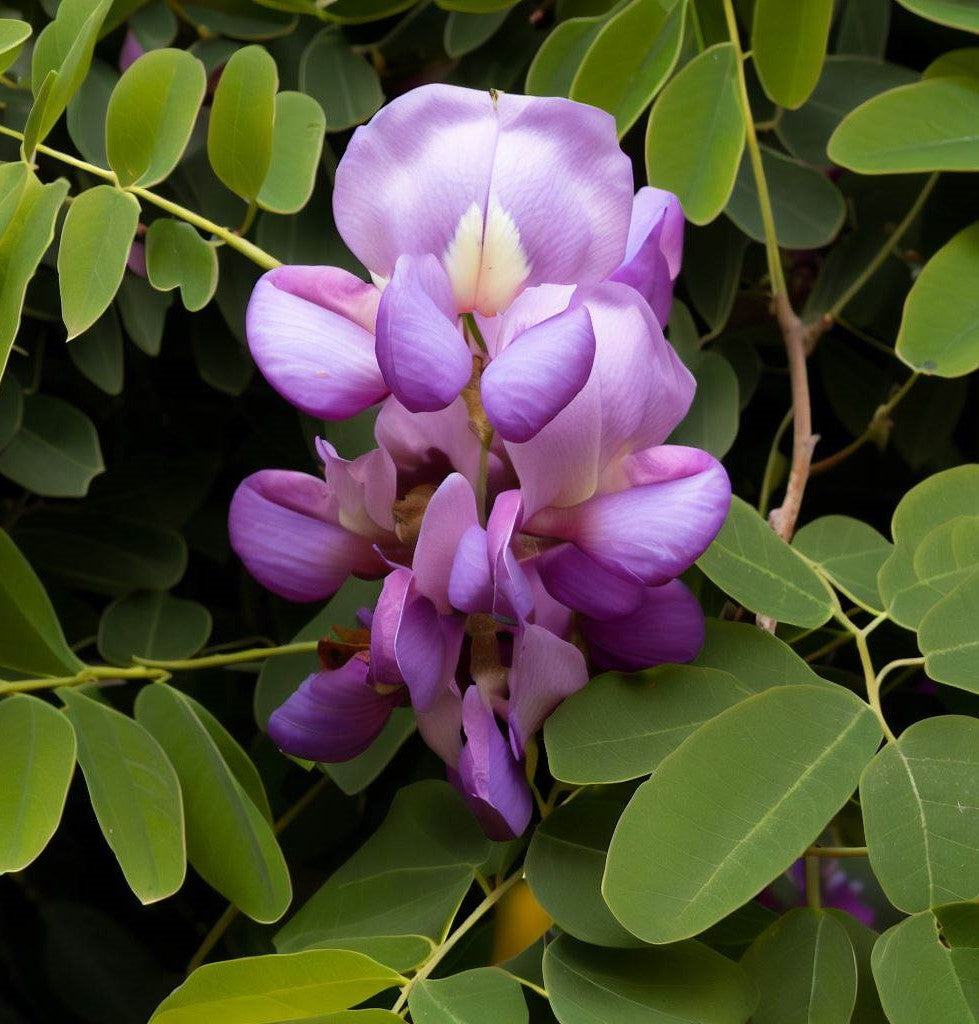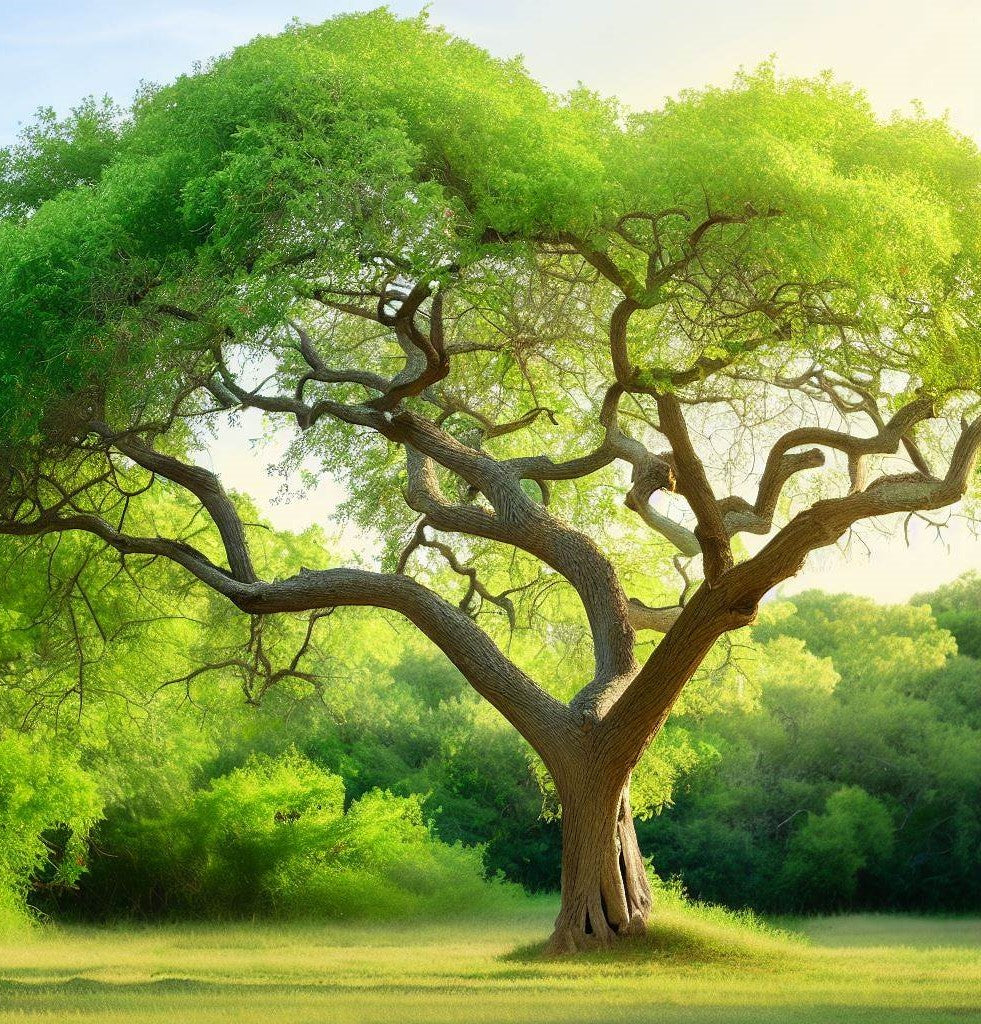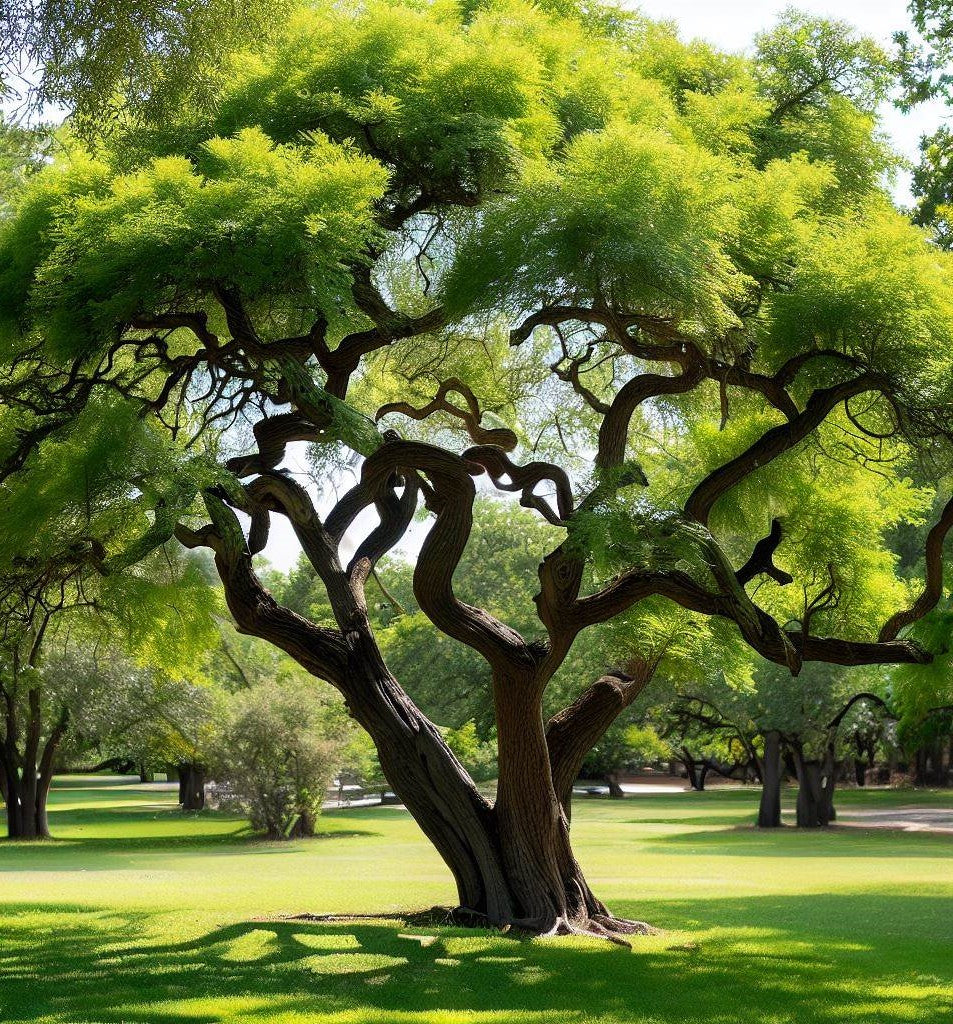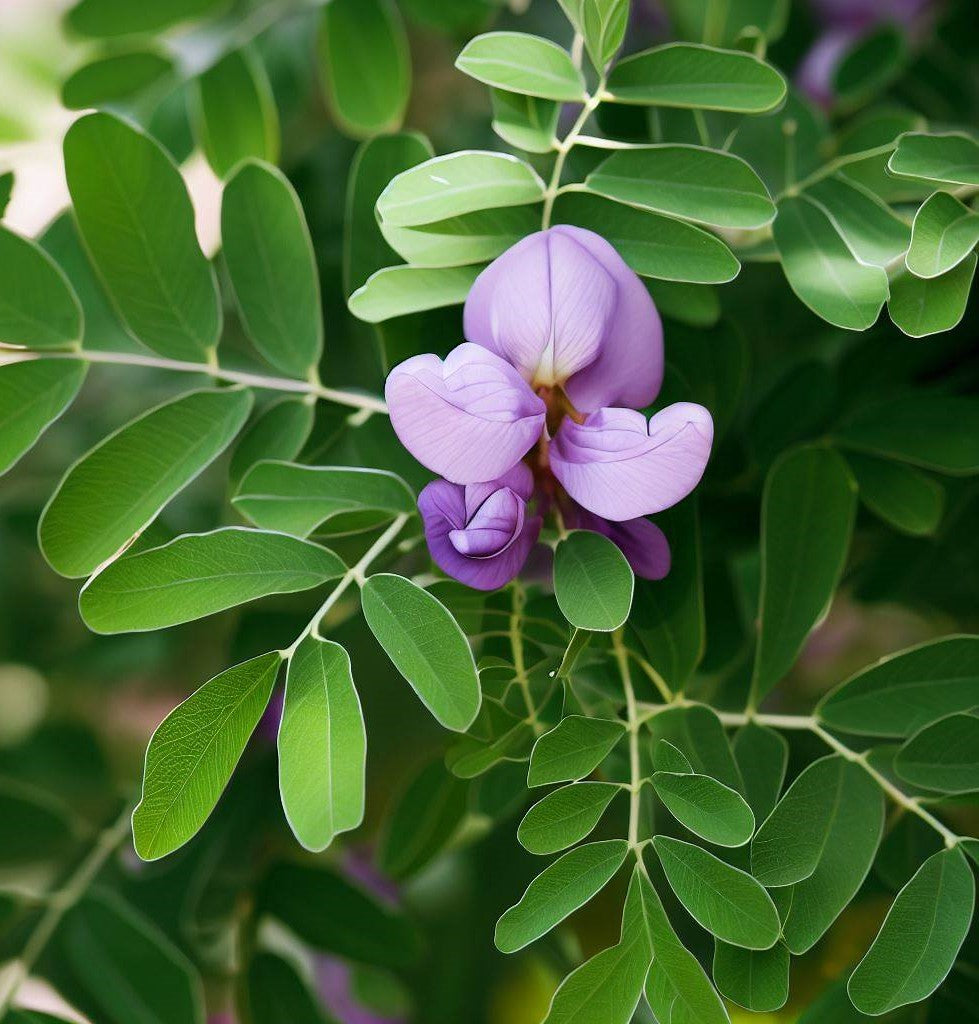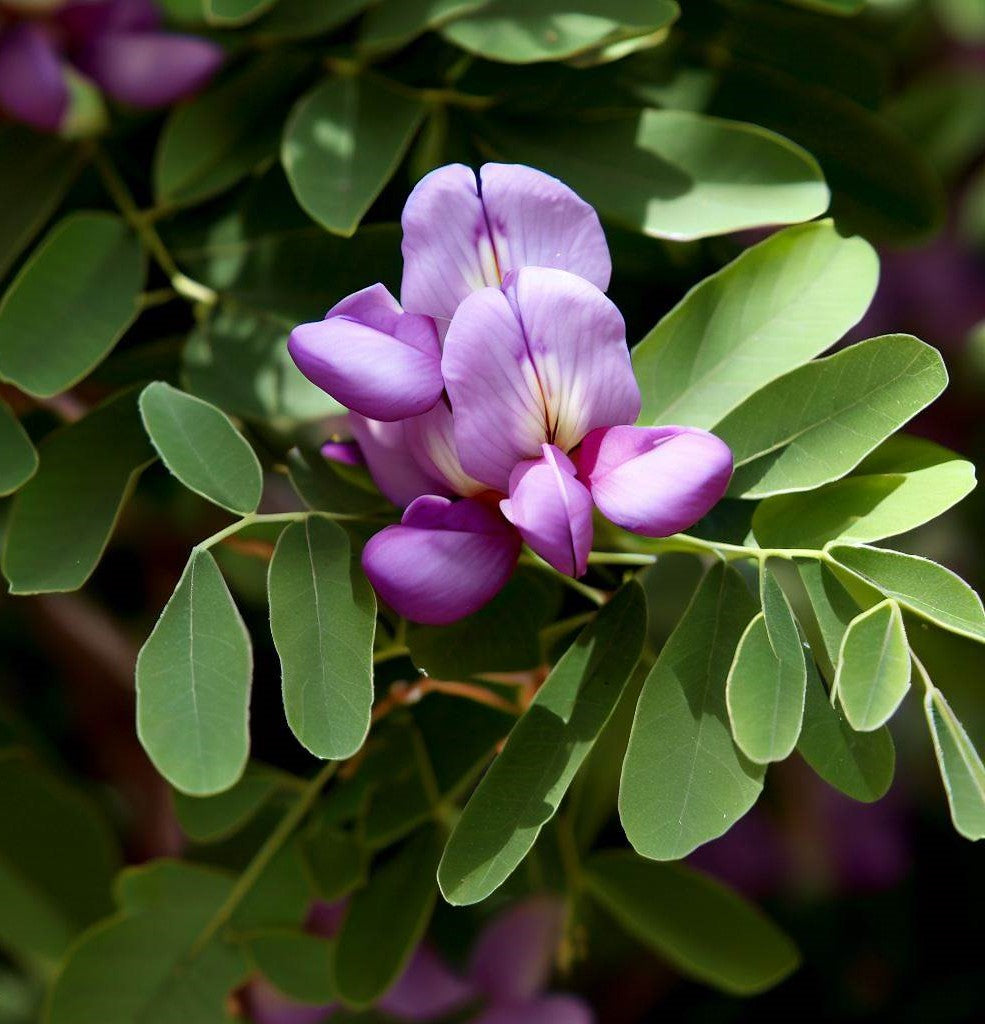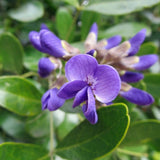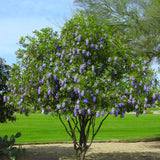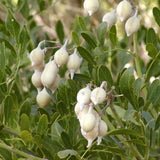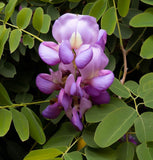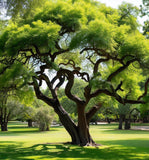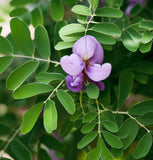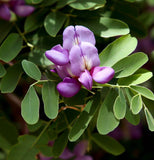Sophora secundiflora (Frijolillo, Frijolito, Mescal Bean Tree, Texas Mountain Laurel, Texas Mescal Bean)
Sophora secundiflora (Mescal Bean Tree, Texas Mountain Laurel) is a small to medium-sized evergreen tree native to the southwestern United States, particularly Texas, and parts of Mexico. The Mescal Bean Tree is known for its attractive, dense foliage and beautiful flowers. It typically grows to a height of 10 to 30 feet (3 to 9 meters), with a spread of 10 to 20 feet (3 to 6 meters). The leaves are compound, dark green, and leathery, composed of several small leaflets. The tree produces clusters of showy, fragrant, bluish-purple flowers in the spring, which resemble small orchids and attract pollinators such as bees and butterflies.
Drought Tolerance and Adaptability: Sophora secundiflora is well-adapted to the arid and semi-arid conditions of its native habitat. It is highly drought-tolerant and thrives in full sun. The tree is also tolerant of a range of soil types, including rocky or alkaline soils, as long as they are well-draining.
Fragrance and Toxicity: One of the notable features of the Mescal Bean Tree is the intoxicating fragrance of its flowers. The blooms have a strong, sweet scent reminiscent of grape soda or artificial grape flavoring. However, it's important to note that the seeds of the tree, known as mescal beans, are highly toxic and should not be ingested. They contain a compound called cytisine, which can be harmful to humans and animals if consumed.
Wildlife Value: Despite the toxicity of its seeds, the Mescal Bean Tree provides important habitat and food for wildlife. The flowers attract pollinators, while the seeds are consumed by certain bird species. The plant also serves as a host plant for the larvae of the Genista moth, which has a specialized relationship with the tree.
Ornamental Use: Sophora secundiflora is widely cultivated as an ornamental tree for its attractive appearance and fragrant flowers. It is often used in landscaping as a focal point or as part of native and xeriscape gardens in regions with dry climates. The tree's evergreen foliage and spring blossoms make it an appealing choice for adding beauty and fragrance to outdoor spaces.
Cultural Significance: The Mescal Bean Tree holds cultural significance among indigenous peoples of the southwestern United States. The seeds of the tree, although toxic, have ceremonial and historical uses in certain Native American cultures. However, caution should be exercised regarding the handling and consumption of the seeds due to their toxicity.
If you are considering planting or working with Sophora secundiflora, it's advisable to be aware of the potential toxicity of the seeds and take appropriate precautions. As always, consulting with local experts or horticulturists can provide specific guidance on cultivation, care, and any safety considerations regarding this tree.
Botanical Name : Sophora secundiflora
Common Name : Mescal Bean Tree, Texas Mountain Laurel
Height : 10- 15 ft
Spread : 5 ft
Germination Info : Seed requires scarification prior to sowing
Hardiness zone : 8-10
Other info : Very thick seed coat. Do not overwater
Average seed per ounce : Approx. 31

